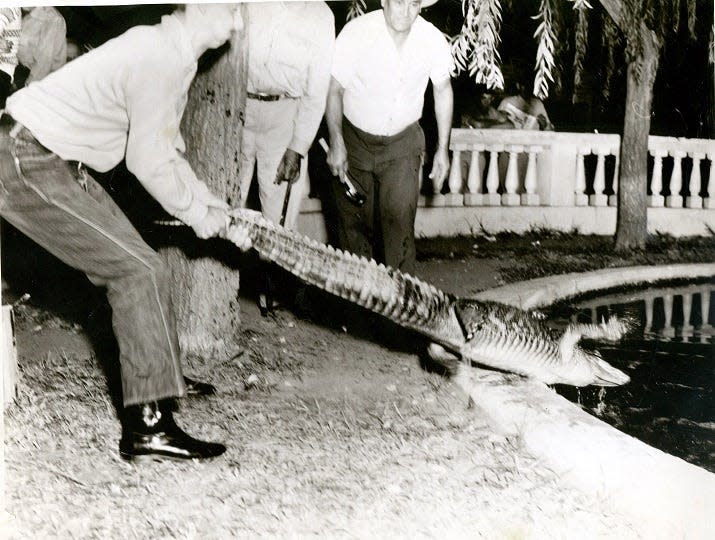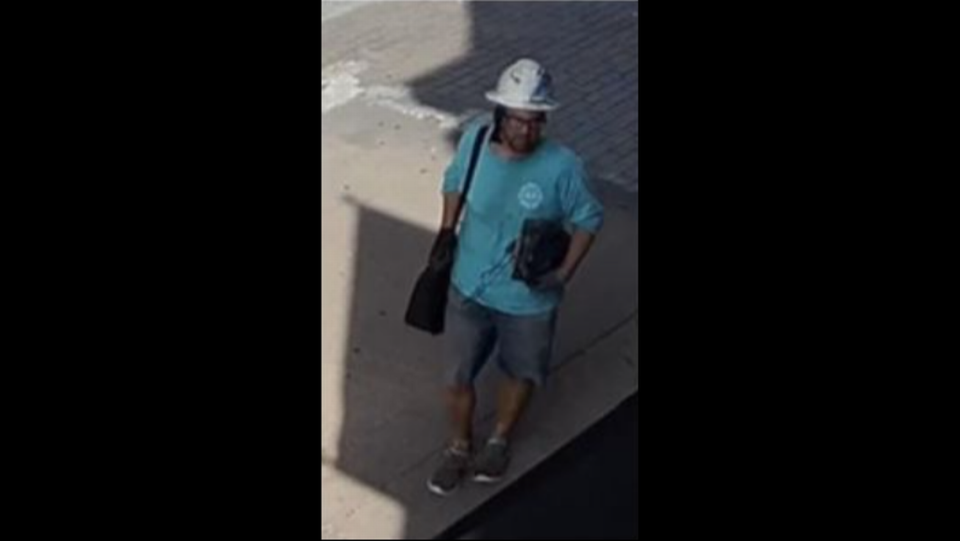In 1922, the El Paso Herald ran a semiregular column, “Oddities In The El Paso News.” From mosquito watching at City Hall to a banana peel slip at Alligator park, following are one-paragraph “Oddities” in the Borderland ― excerpts from some those columns:
Watching mosquitos hatch
Aug. 5, 1922
Watching mosquitos hatch is the newest indoor sport at the City Hall. At mosquito headquarters in the building a glass jar filled with water in which has been placed a number of wiggletails. A few of the mosquitos hatch every day, fly to the top of the cylindrical screen above the glass and perish.
Ten pounds is the limit so far as importing pretzels into Juarez is concerned. Saloonmen who use that article to stimulate thirst, therefore, carry small packages of them over the river every morning. The average saloon needs about five pounds daily.
An El Paso street car motorman who has a wife and five children and is on the extra list and waits at the carbarn until opportunities for trips present themselves, last week had to give up $1.50 of his earnings to make up for Mexican pennies and other comparatively worthless foreign coins dropped into the boxes of cars he operates.
Col. N. Lapowski, city clerk and chairman of the American Legion’s grievance committee, is one man who had a chance to get rich and would not take it. The government allows a man to collect 10 percent of any claim he gets for a disabled service man. If the colonel had received from disabled veterans 10 percent of all sums he obtained for them, he would be $70,000 richer. As it is, he is still working for a salary and not five cents better off – materially.
Don’t pull out a cigarette on Comercio street and fumble for a light unless you want to pay a penny for a match. A number of small Mexican boys watch Americans in that plight and run up to them with lighted matches. After the Americans accept the lights, the boys demand pennies.
More: NFL player Jerry Nuzum faced trial by fury after Las Cruces teen slain: Trish Long
Ventas por Mayor
Aug. 22, 1922
“Ventas por Mayor” is a sign on San Antonio street. It means “sales at wholesale.” A passerby remarked: “Who is this guy Ventas that is running for Mayor?”
A Mexican woman residing in South El Paso who washes for families in Government Hill has a baby turkey and the dogs and larger fowls have been chasing it. In order to save the life of the little bird, she takes it to work with her, carrying it under her waist.
“Uncle Sam” and “Napoleon” are neighbors, these being the names of saloons on opposite sides of the same block in Devil’s Row, Juarez.
P.D. Scott, “Juarez Scotty,” who serves lunch at the Turf, claims to be the busiest man in Juarez, making between 1500 and 2000 sandwiches daily.
Napoleon Lucero, manager for the El Paso Gas company in Juarez, is a former press telegrapher, and he can take a press report today as good as the best of them.
Arthur Lockhart has a moving picture machine of his own and he also has a big lawn. He has hit upon the happy idea of making moving pictures of his friends mowing his lawn – and it works splendidly.
When Milton Warner was a boy, the other fellows called him Miltie. Recently in a burst of confidence he told this to Mrs. Warner and in another confidential burst she told it to a woman friend and the woman friend told it confidentially to her husband, and now when the Rotarians or other friends want to get Warner’s goat they call him “Miltie.”
R.H. Rinehart is the only man alive who served in Roosevelt’s Rough Riders and can say that he has never held a federal appointment and never asked for one.
When the Mills building was under construction a gage was kept on the ground level and it was found that when the sixth story was completed the building had settled three-sixteenths of an inch all around.
Sign on a northside garage: “Autos stored $7 a month, Fords $6.”
The last two of the three trees that stood on the sidewalk in front of the residence on West Boulevard in which Gen. Victoriano Huerta died, have just been dug up, having recently died, as the first one did shortly after the death of the former Mexican dictator. Four big pulque plants in the front yard are healthy looking specimens of vegetation still.
More: A look back at the history of the letters on El Paso’s Franklin Mountains and NMSU’s ‘A’
‘We’ll hold your hoss’
Dec. 9, 1922
“We’ll hold your hoss, crank your Ford, and even take care of your baby – but we cannot cash your check.” So reads a sign in an El Paso restaurant.
Americans note with surprise that squads of soldiers marching through Juarez streets turn on bugle calls, instead of oral orders by officers, as in the American army.
“Very interesting” are the words appearing in black type on the first line in a circular on walls in Juarez announcing the opening of a new undertaking establishment.
Admiral George Dewey, hero of the war with Spain, is a patron of slot-machine gambling in Juarez. His photograph, in the center of a red, white and blue shield, grace the front of many of the machines. The latest type of machines to be installed in Juarez saloons has in metal relief a Liberty Bell, with “1776” in the center.

This girl was good looking and was sitting on a bench at the extreme southeast corner of Alligator park. The bench faced south. So did the girl. A dapper young man was crossing Mesa avenue. He saw the girl, threw out his chest and intended to give her a treat by letting her give him the once over. When at the Mills street sidewalk the dapper young man’s foot came in contact with a banana peel and he did a swimming stunt on the sidewalk. The girl giggled and the youth retreated.
A bottle of poisonous whiskey seized by prohibition agents recently was wrapped in an old newspaper with a conspicuous headline reading “Beware of Juarez liquor,” says Bob Jones.
W.D. Smith, zone dry chief stationed in El Paso, was one of the first three federal prohibition agent. He was appointed in Washington in December, 1919.
Trish Long may be reached at tlong@elpasotimes.com or915-546-6179.
This article originally appeared on El Paso Times: Oddities in El Paso News, border life in 1922: Trish Long
Signup bonus from





